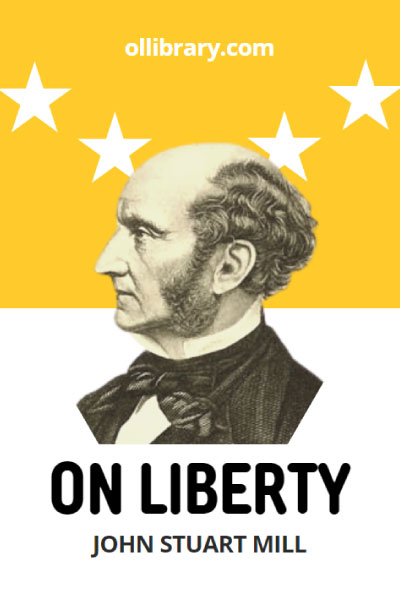On Liberty
On Liberty is a philosophical essay by the English philosopher John Stuart Mill. Published in 1859, it applies Mill's ethical system of utilitarianism to society and state. Mill suggests standards for the relationship between authority and liberty. He emphasizes the importance of individuality, which he considers prerequisite to the higher pleasures — the summum bonum of utilitarianism. Furthermore, Mill asserts that democratic ideals may result in the tyranny of the majority. Among the standards proposed are Mill's three basic liberties of individuals, his three legitimate objections to government intervention, and his two maxims regarding the relationship of the individual to society.
On Liberty was a greatly influential and well-received work. Some classical liberals and libertarians have criticized it for its apparent discontinuity with Utilitarianism, and vagueness in defining the arena within which individuals can contest government infringements on their personal freedom of action. The ideas presented in On Liberty have remained the basis of much political thought. It has remained in print since its initial publication. A copy of On Liberty is passed to the president of the British Liberal Democrats as a symbol of office.
Mill's marriage to Harriet Taylor Mill greatly influenced the concepts in On Liberty, which was published shortly after she died.
Excerpted from On Liberty on Wikipedia.
On Liberty
| Author | John Stuart Mill |
| Country | United Kingdom |
| Genre | Politics, Essays, Philosophy |
| Copyright | Public domain worldwide. |
| Book cover | - |
| Ebooks | Project Gutenberg |
| Scans | Google-digitized |
| Audio | Librivox | Internet Archive Reader: Collaborative 01 2a 2b 03 04 05 |
| Read online | On Liberty |


